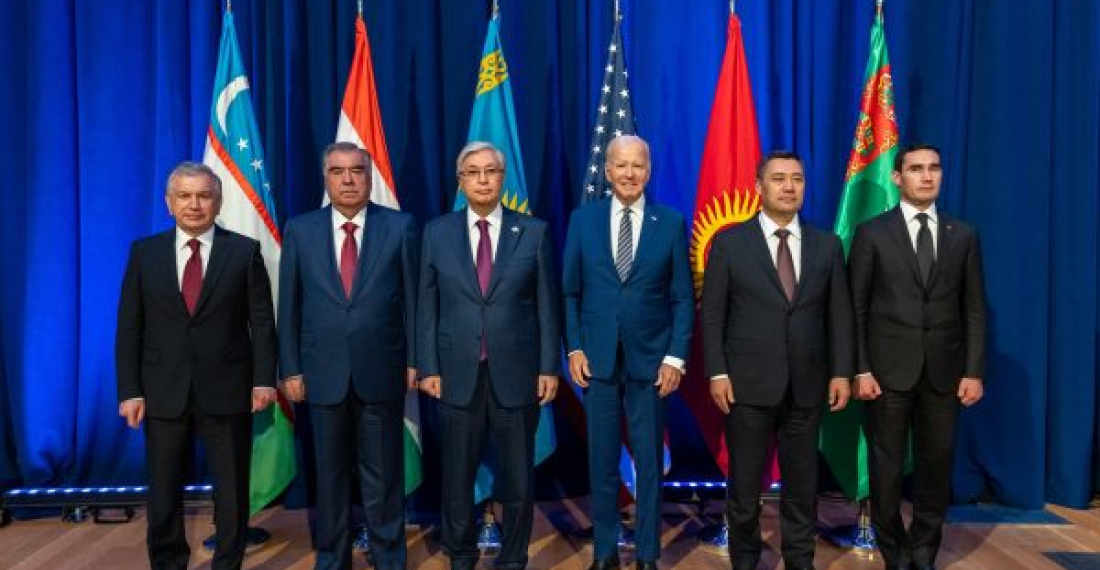You can hardly open a website or a newspaper these days without encountering some story about Central Asia, usually related to its difficult relations with Russia, or reporting the long parade of suitors that regularly visit the region.
The five Central Asian countries – Kazakhstan, Kyrgyzstan, Tajikistan, Turkmenistan and Uzbekistan, were until 1991 part of the Soviet Union. They were less prepared for independence than the other post-Soviet States, and by and large, they remained within Moscow’s sphere of influence. Central Asia is often described as Moscow’s backyard, but often it felt like it was Russia’s spare room: a source of natural resources, and cheap labour, and a formidable geographic cordon sanitaire protecting the Russian motherland from potential enemies to the South. In the early 1990s western countries, including the US, UK, Germany, Turkey and others tried to engage with the region, but they were, by and large, rebuffed. Except for some strategic investments in energy, the five republics remained firmly entrenched politically and economically, and to a large extent culturally, in the Russian system, led by leaders who were in most cases leftovers from the communist nomenklatura.
That started changing slowly and in the last five years rapidly. New leaders came to power understanding that change was inevitable. In Kazakhstan and Uzbekistan, leaders initiated reforms, with so far mixed results. In parallel the region has been trying to emerge out of the clutches of the Kremlin and carve for itself a balanced foreign policy, including through relations with China, the US, the EU, Turkey and the Gulf countries. Central Asia needs investment; it needs technology; it needs training for its cadres and it needs connectivity to overcome its remoteness and isolation as a land-locked region. Many countries are very keen to engage. The region is rich in natural resources, including oil and gas, and the home of many rare minerals essential for new technology. The West is also keen to break the Russian monopoly in Central Asia. Most Central Asia countries remain members of the Russia-led economic and military blocks of the EAEU and CSTO, but both these organisations remain weak, and following the Russian invasion of Ukraine in 2022 Russia’s outreach in the region is weakened.
Some are afraid that history will repeat itself, and that after an initial flurry of activity, the West will, as it did in the 1990s lose focus, Russia will make a comeback and the region will revert back to its old role. In other words, some fear that whilst Central Asia is the current flavour of the month in world chancelleries, demands in other parts of the world will distract Western capitals. This is not likely to be the case. The strategic importance of Central Asia is well understood; the resolve of the local leaders to move out of the suffocating Russian embrace appears firm; and the people of the region appear to be waking up from a long slumber to forge their own visions and ambitions.
But there is a word of caution that is necessary. The five Central Asian republics are very different from each other: Kazakhstan is geographically huge, has a large Russian minority and is rich in natural resources; Uzbekistan is often considered the strongest, because of its large population, but economically it is weak; Tajikistan is poor but its people desperate not to be left behind. The poverty fuels radicalisation, as was seen in the recent Islamist attacks in Moscow; Kyrgyzstan is small, and whilst once it was heralded as a beacon, these days it lags behind in many aspects. And then there is Turkmenistan, an enigmatic, resource-rich country which many see as a sleeping giant, and where reforms have hardly started. These differences make cooperation between the five Central Asian countries difficult, whilst increasing risks of problems and disputes on borders, water resources and grazing rights escalating very quickly.
Those engaging with Central Asia need to be nuanced in their approach; appreciating the differences between the countries, and also helping to diffuse problems when they arise. Big infrastructure projects are on the horizon, and they will add connectivity, opening the region to the world. This is, and must be a long-term strategic objective. In the meantime, in the West, there is a need to learn more about the region and its people to increase awareness on how to engage with these proud nations in a respectful and dignified way.







